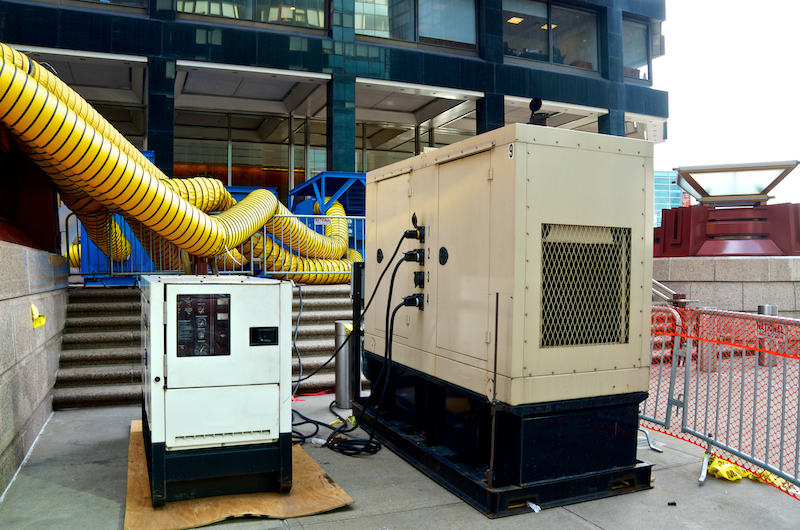Generators: Keeping You in Business

Unexpected events usually lead to unforeseen expenses. However, there are a few steps you can take to protect your business from them. The most obvious step is selecting the right insurance coverage to cover the costs associated with property damage, liability claims, lost income, and other covered losses. An unapparent step is investing in a solution that can keep some of these costs from occurring, like installing a commercial backup/standby generator.
Every business is reliant on power. While some are more reliant than others, the last thing any business owner/operator wants is for operations to come to a complete halt. Lost time equals lost profits. Being prepared by having a backup/standby generator in place is critical to keeping your business productive and profitable.
How a Commercial Standby/Backup Generator Works
A commercial backup/standby generator connects to your business’ wiring and typically installs with an automatic transfer switch (ATS). When an outage is detected, the transfer switch cuts the utility line and simultaneously connects a new power line from the generator to the main panel, restoring power within seconds. After the transfer switch detects that utility power has restored, it switches off the generator power and returns to standby mode.
Although a standby/backup generator can be installed and used without an ATS, automatic switches give you a seamless transition of power. Manual switches can be used but must manually turn on and off, which can be problematic and costly. For example, if your business is a supermarket or restaurant and power goes out in the middle of the night, the next morning you may find many items are below proper temperature, resulting in waste.
What to Look for in a Commercial Standby/Backup Generator
There are many factors to consider when choosing a generator, including your budget, generator size, installation location, fuel choice, and necessary permits. Working with a reputable generator dealer and fuel provider that best fit you and your company is the most critical factor to consider.
Look for a dealer who has:
- A team of specialized, knowledgeable experts
- A reliable history of being readily available to customers
- A local and well-stocked parts warehouse
- Services beyond selling generators, including installation and routine maintenance
Look for a fuel provider who has:
- Emergency fuel services and a guaranteed fuel supply
- 24/7 response
- A secure and extensive national resource network
- Dedicated fuel trucks, wagons, and the proper dispensing equipment
- GPS dispatch/delivery
Why Your Business Needs a Commercial Standby/Backup Generator
Not having a backup/standby generator for your business is a risk you don’t want to take, especially during hurricane season. Power outages can happen at any time and are not minor inconveniences as their costs can quickly escalate. The Department of Energy recently estimated that power outages cost the U.S. economy $150 billion annually. Yes, billion.
Consider these benefits:
- Prevents loss of data, information or research and the extra money and time needed for data recovery
- Consistent power for business productivity and no downtime due to outage
- Helps retain and build your customer base and revenue by ensuring business continuity and the ability to communicate with customers reliably
- Lowers electrical equipment replacement costs from equipment damage caused by power interruptions
- Provides safety and security for employees/patients/residents/customers during inclement weather with necessary heating or air conditioning
- Eliminates the need to evacuate residents in assisted living or nursing homes and powers necessary medical equipment
- Protects your business from looting, burglary and theft since lighting and security systems remain functional
A commercial standby/backup generator can be a significant initial investment, but your dealer may be able to work with you on financing. It might even be possible to purchase a pre-owned or low-hour used generator. If you are on the fence, think of a standby/backup generator as a type of business insurance that’s no different than flood, theft, or Workman’s Comp insurance. And just like any insurance, you hope you never have to use it, but it’s peace of mind knowing it’s there.
Frequent power outages are becoming a norm for U.S. businesses — one in four experience a power outage at least once a month.
So what are you prepared to do the next time your business loses power?